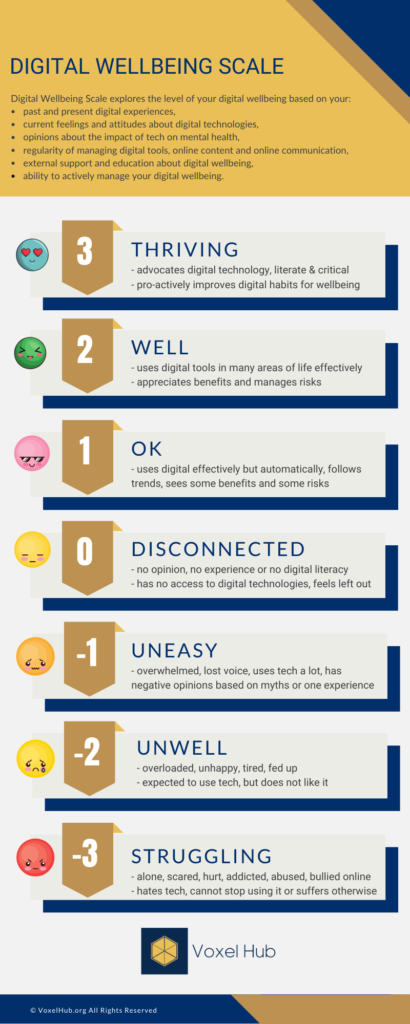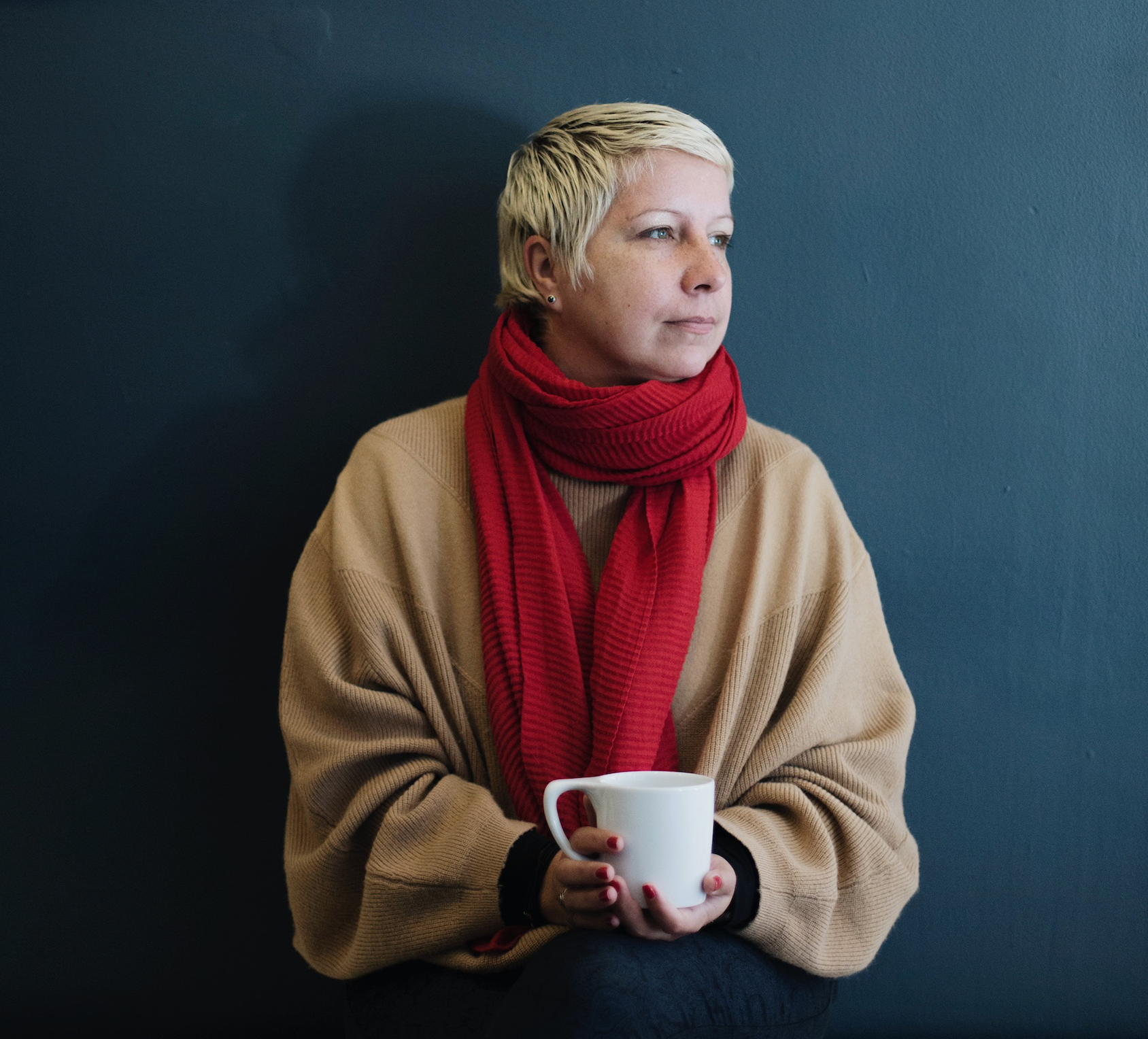
I aim to do this on an individual, but also an organisational and social level. Voxel Hub combines over a decade of my digital work with a strong focus on online ethics together with current findings from cyberpsychology, digital families research, counselling and coaching theory and practice. Voxel Hub explores digital innovation in the context of cyberpsychology, mental health research and wellbeing practice.
Digital landscapes provide fantastic opportunities to connect with fellow humans through technology, to share our story and to build our networks. It is, however, essential to actively engage in those landscapes to form healthy habits and care for our wellbeing. Everyone’s definition of digital wellbeing can be very individual, which is why I offer person-centred solutions. The person-centred approach means that I focus on my support primarily from your point of view. I help you ask the right questions and find sustainable solutions.
I believe that caring for your digital wellbeing is not a destination; it is a journey. I can support you at any point on that journey, help you move forward and feel better equipped.
Why Voxel Hub?
Designing an open, inclusive and dynamic digital wellbeing space can be difficult, finding a name for it even more so. However, over the last decade, I have worked with fantastic people who inspired me to search for the perfect fit. After long research, testing and a bit of creative thinking, I have found two words that represent what I stand for “voxel” and “hub”.
A voxel is a unit of volume measurement used both in graphics design and in CT scans of human brains. It is precisely the unit that represents the meeting point between digital technology and the human mind – a perfect metaphor for our work. Voxels are defined by their placement in relation to other voxels in the 3D space. That is how we think of people connecting with themselves and each other, thus thriving in the digital age. I aim to help people re-connect, so voxel is a perfect symbol and a reminder of my mission.
The word “hub” is essential to us because it signals a space which is not pre-defined by us. It invites all our clients, friends and other stakeholders to shape its future with us. In the world of technology, hubs represent innovative open spaces where startups can grow their connections. In the world of mental health, hubs are associated with free, accessible drop-ins and non-judgemental support. Hence why I chose to name our space a hub too.
This name reflects the mission of Voxel Hub. I hope it will inspire you to join me.
How I do it?
Consultancy and training
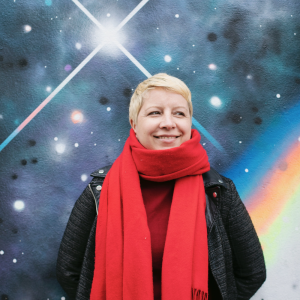
Most of my clients experience digital and digital wellbeing challenges due to a lack of a good understanding of how new technologies operate. I focus on identifying relevant training needs to help you navigate the fast-changing technological landscapes. My goal is to empower you to become an independent thinker and ask us more difficult questions in the future.
I combine digital literacy with consultancy. Many of my clients work and live in complex digital landscapes. Sometimes it can be too hard to start. If that’s the case, I deliver specific digital solutions – strategies, policies, content plans, social media content, work with bloggers, support events etc. However, working closely together with me, you learn to plan and execute your digital campaigns and other activities effectively.
My goal is to ensure that you develop your expertise, hire the right people and make informed choices. That new sense of confidence improves your overall digital wellbeing and growth.
Coaching
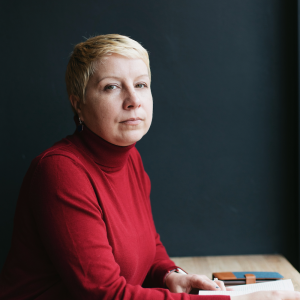
In coaching sessions, I create a safe space for you to explore the opportunities, challenges, choices and actions you can take concerning your life, career, business and digital technologies. We set goals and work on your actions to help you move forward, hopefully, feel better.
Many of my clients prefer to develop their healthy habits and good digital wellbeing in more resilient times. It can be easier and more effective to make important decisions, improve your habits and wellbeing when you feel stronger.
Counselling
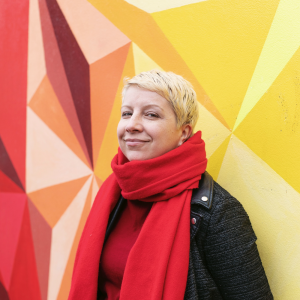
I recommend counselling services to individuals who wish to explore their deeper feelings and behaviours related to general life challenges, bereavement or digital wellbeing. I offer talking therapy and integrated therapy to help you in difficult situations. If you struggle with strong feelings around digital technologies, I can help you explore those safely.
I also work with parents, students, creatives, professionals, business owners and other individuals who need ongoing support and reflective practice. It is worth carrying for your wellbeing in more relaxed times. It is easier to improve your mental health and wellbeing when you feel a bit stronger, more comfortable and more resilient. For some of my clients, talking therapy is an ongoing form of self-care.
Why I do it?
What is Digital Wellbeing?
Digital wellbeing is a new concept, so very few professionals have a clear definition. It is a term commonly used in relation to healthy digital habits.
However, based on my digital experience, cyberpsychology, and mental health studies, I have prepared a more specific definition and dedicated digital wellbeing model.
I define digital wellbeing as a process of active, informed decision-making to improve our sense of wellbeing in the digital age.
Instead of unplugging, we should embrace the digital age and make digital tools work for us.
I believe that good digital wellbeing depends on six key aspects:
- your personal experiences and active education (digital literacy),
- a good understanding of digital landscapes and tools (digital technologies),
- balanced participation in content creation and consumption (your digital creativity and the content you are accessing),
- how you shape your online identity (digital identity),
- how you connect with others online (online networks).
There are a few more complex digital wellbeing models, but for Voxel Hub purposes, I prefer to keep digital wellbeing as simple as possible.
If you want to find out more about the current research, go to the resources page.
If you want to review your personal digital wellbeing, go to our self-assessment page.
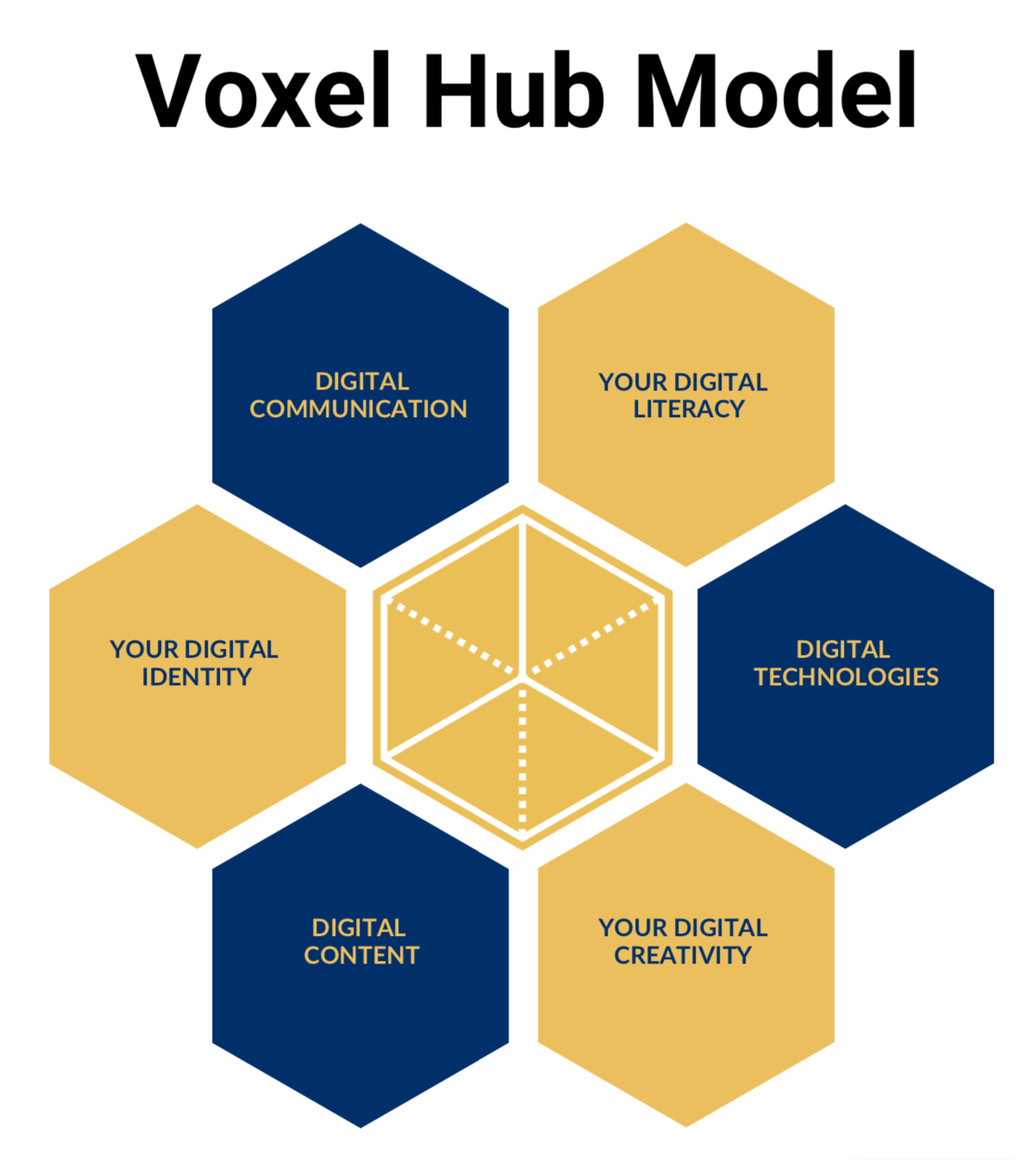
Digital
The digital age is here, and it is here to stay. Digital technologies, such as social media platforms (and their regularly changing algorithms), online gaming, social TV, streaming services, Virtual Reality, Artificial Intelligence and smart tech, redefine how we live our daily lives. The digital revolution started in the 1950s, yet “digital wellbeing” only recently entered the public discourse. Now, more than ever, it is imperative to consider for a moment how all those established, and upcoming digital technologies impact our lives and our mental health. Instead of relying on tech companies or mainstream media, it’s time to ask ourselves critical questions. It’s time to decide how we want to use new technologies effectively while caring for our wellbeing.
Wellbeing
Balanced, informed and non-judgemental discussions about good mental health are new. The language used around mental health in mainstream media is still often very negative and places a focus on struggles and illness. In the meantime, as digital users, we are left to figure out the best way forward for our wellbeing without much digital literacy or guidance. Normalising public conversations might take some time, but we can start thinking critically on an individual level. The idea of good digital wellbeing starts with exploring what good mental health means to each of us individually. I set up Voxel Hub to help you do just that.
Click here to find out more.
Who can benefit from my support?
I founded Voxel Hub to help everyone, regardless of their current situation. I have developed a handy digital wellbeing scale to help my clients. It helps them identify where they are at the moment and how they could move towards more thriving digital wellbeing. I use this scale together with other, more traditional consultancy, coaching and counselling forms of assessment and progress tracking.
Please note: Life can be surprising, and on some occasions, people can move between various levels of digital wellbeing, which is OK. Good digital wellbeing can feel like an active, sometimes challenging process. However, I am here to support you. Get in touch to discuss your specific individual or organisational needs.
